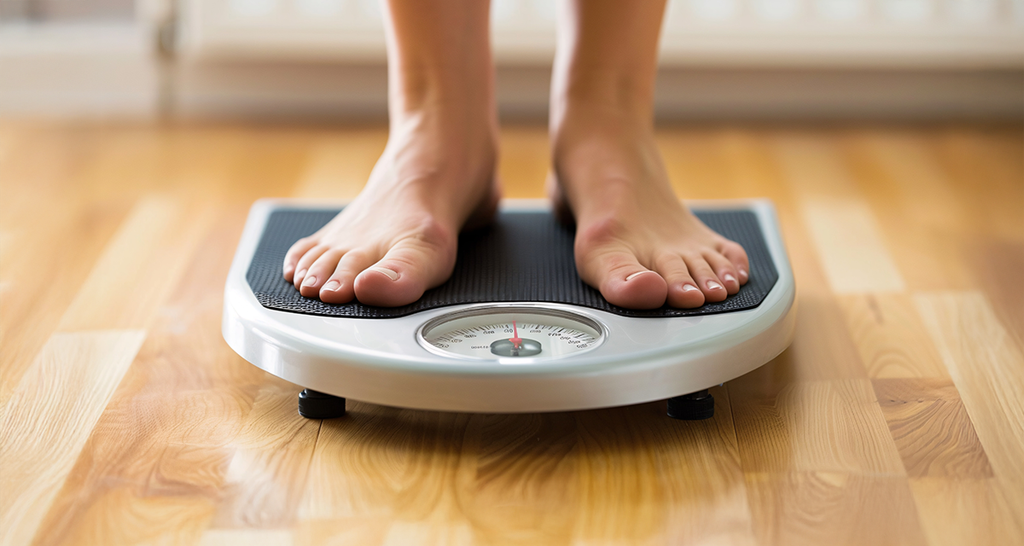
Maintain Good Gut Health: Learn How to Balance Your Gut Microbiome

We’ve all had a “gut feeling” about something, whether it’s a hunch about a decision or an instinct that just feels right. But did you know that your gut does more than just send you signals? It’s home to trillions of bacteria that influence everything from digestion to mood and even weight management. When your gut microbiome is balanced, you feel energised, your digestion runs smoothly, and cravings are easier to control. But when it's out of sync? Bloating, sluggishness, and stubborn weight gain can follow.
If you’ve ever struggled with maintaining a healthy weight despite eating well and exercising, your gut might be the missing piece of the puzzle. An imbalanced gut can make it harder to absorb nutrients, regulate hunger hormones, and manage cravings. The good news? You can take charge of your gut health with the right nutrition and gut health supplements. So, let’s understand why balancing your gut microbiome is key to feeling your best–inside and out.
What is the Gut Microbiome, and Why is it Important?
Your gut microbiome is made up of trillions of tiny organisms, including bacteria, fungi, and other microorganisms that call your digestive system home. Most of these little guys hang out in your intestines, and you might be surprised to learn just how important they are for your overall health. When your gut microbiome is balanced, these microbes team up to help break down food, absorb nutrients, and even have a say in how your metabolism works.
When that balance gets thrown off–whether it's from a bad diet, stress or not getting enough sleep–it can cause problems like bloating, digestive issues, and even make it harder to manage your weight. Studies have shown that an imbalance in the gut microbiome can play a role in weight gain, since the kinds of bacteria in your gut affect how you digest food and store fat.
How to Improve Gut Health?
1. Eat More Fibre-Rich Foods
A healthy gut starts with the right foods. If you want to boost your gut health, make sure to add fibre-rich options like fruits, vegetables, whole grains, and legumes to your diet. These foods nourish the good bacteria in your gut, helping them flourish. A diet high in fibre supports a balanced microbiome, which can help reduce bloating and inflammation.
2. Incorporate Probiotics and Prebiotics
Probiotics are live bacteria that bring beneficial microbes into your gut, and you can find them in fermented foods like yogurt, kimchi, and kefir. Prebiotics, on the other hand, are non-digestible fibers that feed the good bacteria already in your gut, and you can get these from foods like garlic, onions, and bananas. Combining probiotics and prebiotics is a great way to promote a healthy gut microbiome.
3. Stay Hydrated
Water is essential for digestion, gut health, and weight management. It helps break down food and ensures that nutrients are absorbed effectively. Plus, it keeps the mucus lining of your intestines healthy, which acts as a barrier against harmful bacteria. On the flip side, not drinking enough water can slow down digestion, leading to issues like constipation and bloating.
4. Manage Stress Levels
Managing stress levels is crucial for your overall well-being. Chronic stress can throw your gut bacteria out of whack, which might lead to uncomfortable digestive issues like bloating, constipation or even irritable bowel syndrome (IBS). To keep your gut happy, try incorporating stress-busting activities into your routine–think meditation, exercise, deep breathing, and making sure you get enough rest.
5. Limit Processed Foods and Artificial Sweeteners
When it comes to your diet, it's best to steer clear of processed foods and artificial sweeteners. These can mess with the balance of your gut microbiome by lowering the good bacteria and allowing the bad ones to thrive. Instead, focus on whole, nutrient-rich foods like lean proteins, healthy fats, and fibre-packed veggies. This way, you create a gut-friendly environment that supports both digestion and metabolism.
6. Get Enough Sleep
And let’s not forget about sleep! The connection between sleep and gut health is pretty strong. If you're not getting enough quality sleep, it can disrupt your gut bacteria balance, leading to digestive troubles and even weight gain. Aim for 7-9 hours of good sleep each night by sticking to a consistent sleep schedule, cutting down on screen time before bed, and establishing a calming bedtime routine.
7. Consider Gut Health Supplements
Sometimes, just changing your diet isn't enough to keep your gut microbiome in check, especially if you're facing food cravings, irregular digestion or challenges with weight management. That's where gut health supplements come into play! Products like LightLife’s Pre-Meal Nutrition Mix and On-the-Go Meal, which include SlimBiome–a scientifically backed ingredient–can really help nourish your gut bacteria, reduce those pesky cravings, and support sustainable weight management.
Closing Thoughts
A healthy gut is truly the foundation of overall well-being. By learning how to balance your gut microbiome, you can unlock the secrets to better digestion, a brighter mood, and healthy weight management. With products like LightLife’s Pre-Meal Nutrition Mix and On-the-Go Meal, powered by SlimBiome and Patented Probiotics, you have a simple and effective way to improve gut health while keeping your weight in check. So, if you're ready to take charge of your health, start with your gut–it’s the first step toward feeling and living your best life!






